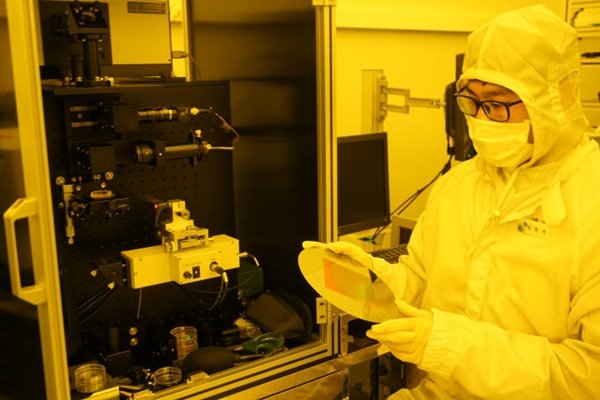South Korean research team has developed a technology that can capture drones or cars that are moving at a fast rate without any afterimage through infrared cameras. This technology improves camera’s response speed by more than 3 times and is expected to receive spotlight in fields of high-tech IoT (Internet of Things) and sensor that utilize infrared cameras.
Korea Institute of Machinery & Materials (Director Park Cheon-hong) announced on the 28th that a research team led by Professor Jung Joo-yeon of Nanno Process Laboratory has developed ‘infrared camera meta-surface absorber’ that helps image sensors to have quick response even with small amount of infrared energy.
Infrared cameras are cameras that convert outside infrared light into heat and turns difference in time into an image while absorbers convert infrared wavelength into heat. This method fills inside with heat and sends heat to an image sensor. This process takes milliseconds of time and produces unclear images and afterimages due to slow response speed.
Until now, industries created holes on absorbers in order to improve response speed. Reduced volume reduces ‘heat mass (how much heat is absorbed)’ and can minimize heat conversion and time it takes to send information. However as surface area becomes smaller, there were limitations in absorption of infrared wavelength which greatly reduced performance of imagification.

Research team implemented small porous ‘meta-surface’ on top of an absorber’s surface and solved such limitations. Meta-surface indicates a surface structure that has special electric properties. Holes that are smaller than 7 micrometers do not affect absorption of infrared wavelength. While this method reduces volume of an absorber, it maintains absorption rate of wavelength.
Research team added a device that maintains heat within an absorber. It separated an absorber and a camera board and prevented heat loss. It is going to start researching into commercialized packaging so that these technologies can be used in variety of industries.
Research team explained that this technology will be an opportunity that will increase level of use for infrared cameras and that it will enhance sensing abilities for self-driving cars and drones that require fast shooting of images.
“Sensor is an important element for Industry 4.0 and IoT technologies.” said Director Park Cheon-hong. “We have developed a technology that is close to lifestyle of South Koreans by applying meta-surface technologies that is an unfamiliar concept.”
Staff Reporter Kim, Youngjoon | kyj85@etnews.com